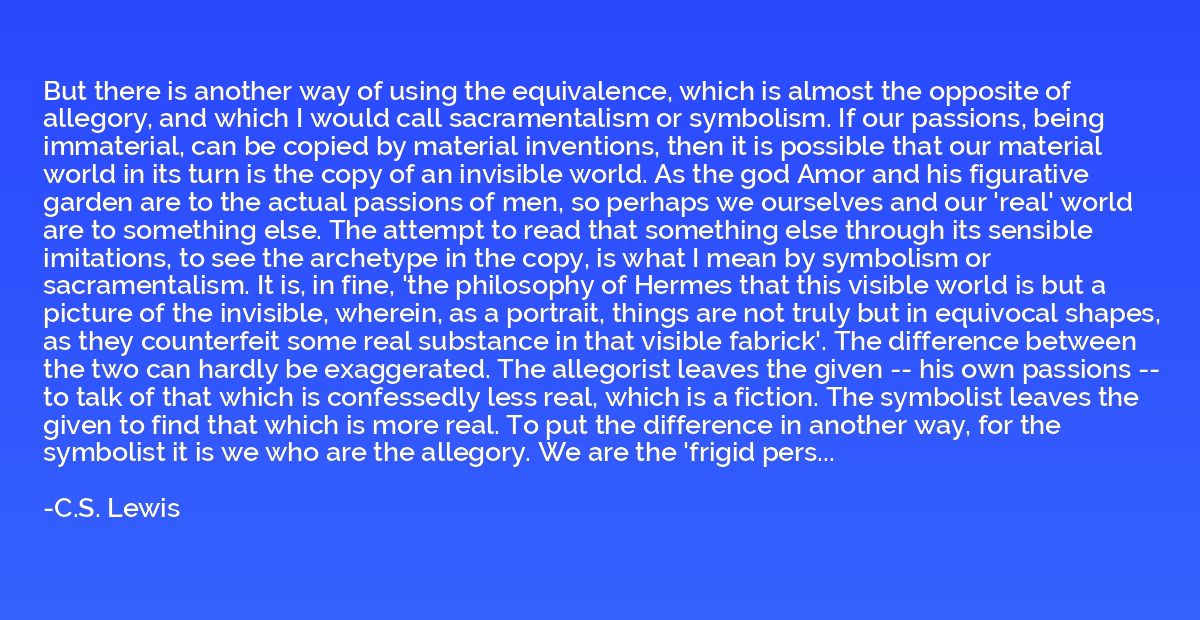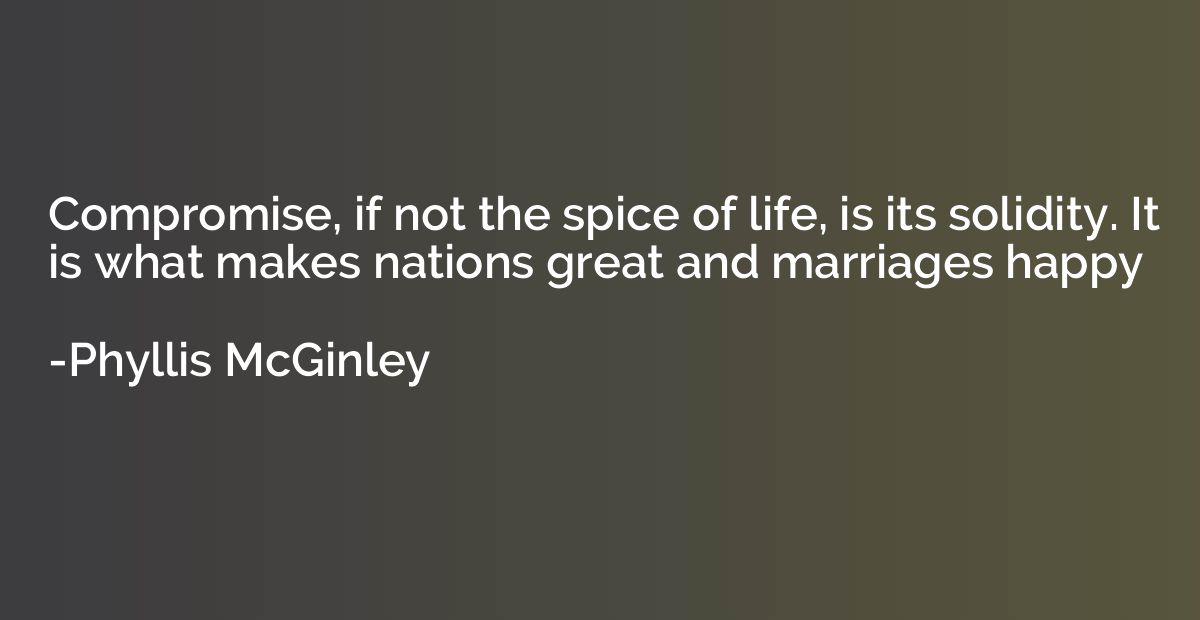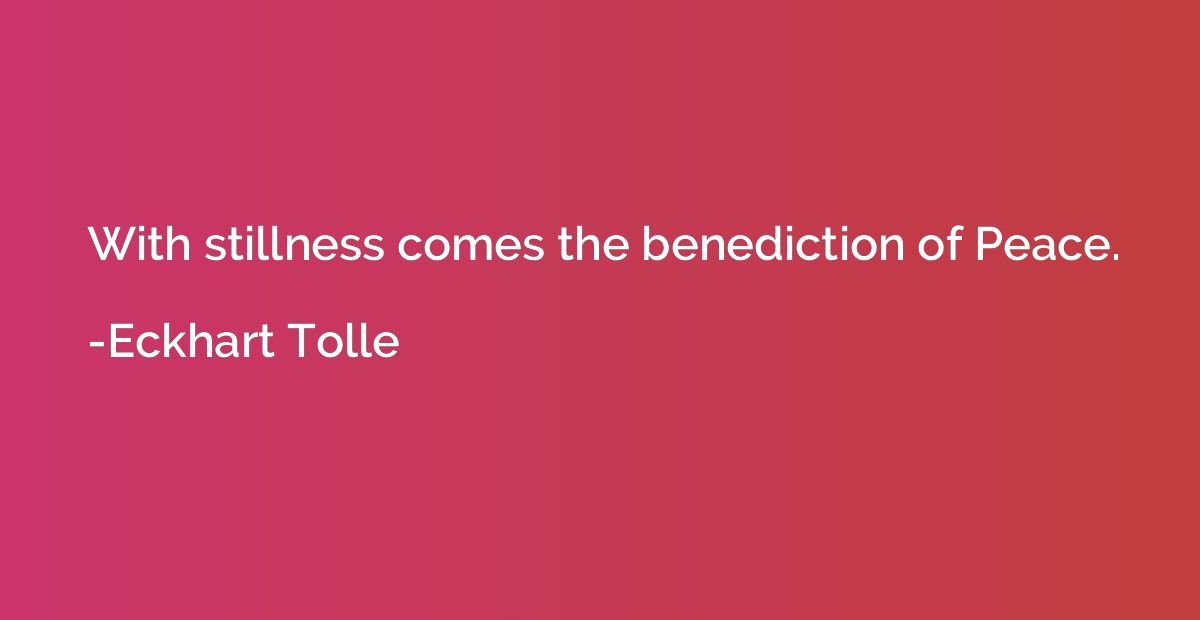Quote by C.S. Lewis
But there is another way of using the equivalence, which is almost the opposite of allegory, and which I would call sacramentalism or symbolism. If our passions, being immaterial, can be copied by material inventions, then it is possible that our material world in its turn is the copy of an invisible world. As the god Amor and his figurative garden are to the actual passions of men, so perhaps we ourselves and our 'real' world are to something else. The attempt to read that something else through its sensible imitations, to see the archetype in the copy, is what I mean by symbolism or sacramentalism. It is, in fine, 'the philosophy of Hermes that this visible world is but a picture of the invisible, wherein, as a portrait, things are not truly but in equivocal shapes, as they counterfeit some real substance in that visible fabrick'. The difference between the two can hardly be exaggerated. The allegorist leaves the given -- his own passions -- to talk of that which is confessedly less real, which is a fiction. The symbolist leaves the given to find that which is more real. To put the difference in another way, for the symbolist it is we who are the allegory. We are the 'frigid personifications'; the heavens above us are the 'shadowy abstractions'; the world which we mistake for reality is the flat outline of that which elsewhere veritably is in all the round of its unimaginable dimensions.

Summary
This quote speaks about the concept of sacramentalism or symbolism as a way to understand and interpret the world. It suggests that if our material world is a copy of an invisible world, then it is possible to see the archetype or essence of things through their tangible representations. The symbolist seeks to go beyond the literal and finds deeper meaning in the world, considering ourselves and our reality as mere allegories or representations of something greater. In contrast to the allegorist who deals with fictional and less real concepts, the symbolist believes that what lies beyond is more real and substantial, elevating our perceptions to a higher level of understanding.
By C.S. Lewis














